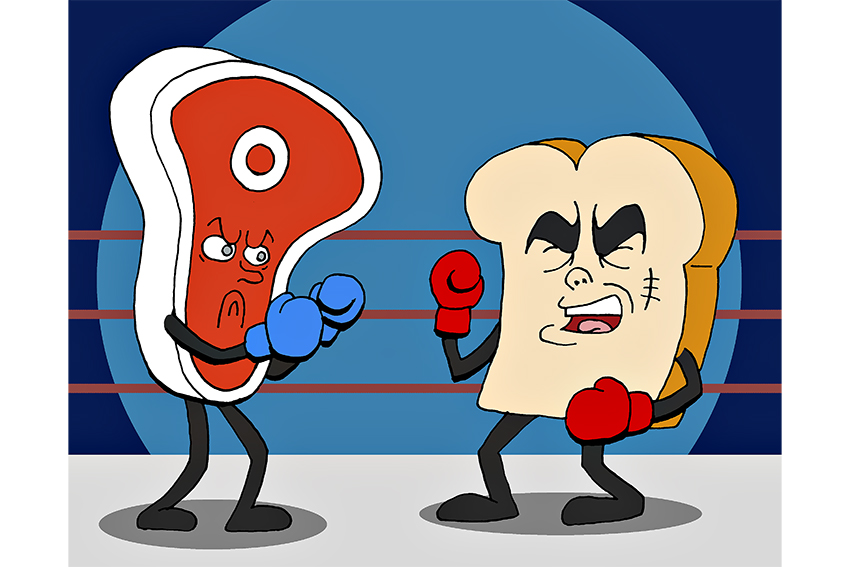The war between carbs and bread is dead.
Despite recent hype in popular media, UT experts crack down on the keto diet and say that a high-fat, low-carb diet may not be as effective as people think.
According to the website Healthline, the ketogenic or keto diet, a popular diet involving a high-fat, low-carb intake, can lead to 2.2 times more weight loss than a calorie-restricted low-fat diet. With this claimed weight loss, it is no surprise that people are setting aside their French toast and reaching for the bacon instead.
According to Lauren McGill, director of Nutrition for the Fitness Institute of Texas, the initial weight loss from the keto diet actually comes from the body burning glycogen, a form of glucose or sugar stored for later use, in the muscles and liver — not fat.
Weight loss in the first couple of days of someone reducing their carbohydrates isn’t actual fat loss, McGill added.
“People think that they’re gaining weight from eating carbohydrates, but really they’re just refueling their muscles and livers,” McGill said. “On the scale it may go up, but your actual body composition isn’t necessarily changing.”
According to McGill, people can effectively experience real weight loss if they sustain a low carbohydrate diet for longer periods of time, but oftentimes they are just cutting away refined sugars, which may not have been nutritious to begin with.
When people cut carbohydrates out completely, they’re shifting their overall eating pattern, and that’s where the sustained weight loss comes in, McGill added.
Limiting carbs may actually be harmful, according to Sarvenaz Vandyousefi, a UT graduate student in nutritional sciences and registered dietitian.
Vandyousefi said carbohydrates are one of the main fuels for the body and minimal carbohydrate intake may lead to deficiencies of nutrients such as calcium, iron, vitamin C and vitamin D.
“Unfortunately, diets and programs that promise a magical rapid weight loss are more appealing and attractive for people, but these diets are often unbalanced and deficient in certain nutrients and may be excessive in others,” Vandyousefi said. “Our body needs all the nutrients for the entire system to work.”
McGill said she agrees that cutting out carbohydrates can put people at risk for vitamin deficiencies.
“That’s not saying that it (the keto diet) can’t be done in a healthy way,” McGill said. “It’s just very difficult to make sure you’re getting all the nutrients you need, because you’re cutting out an entire food group.”
Taste of Science is a recurring column that discusses the science behind food and diet.















